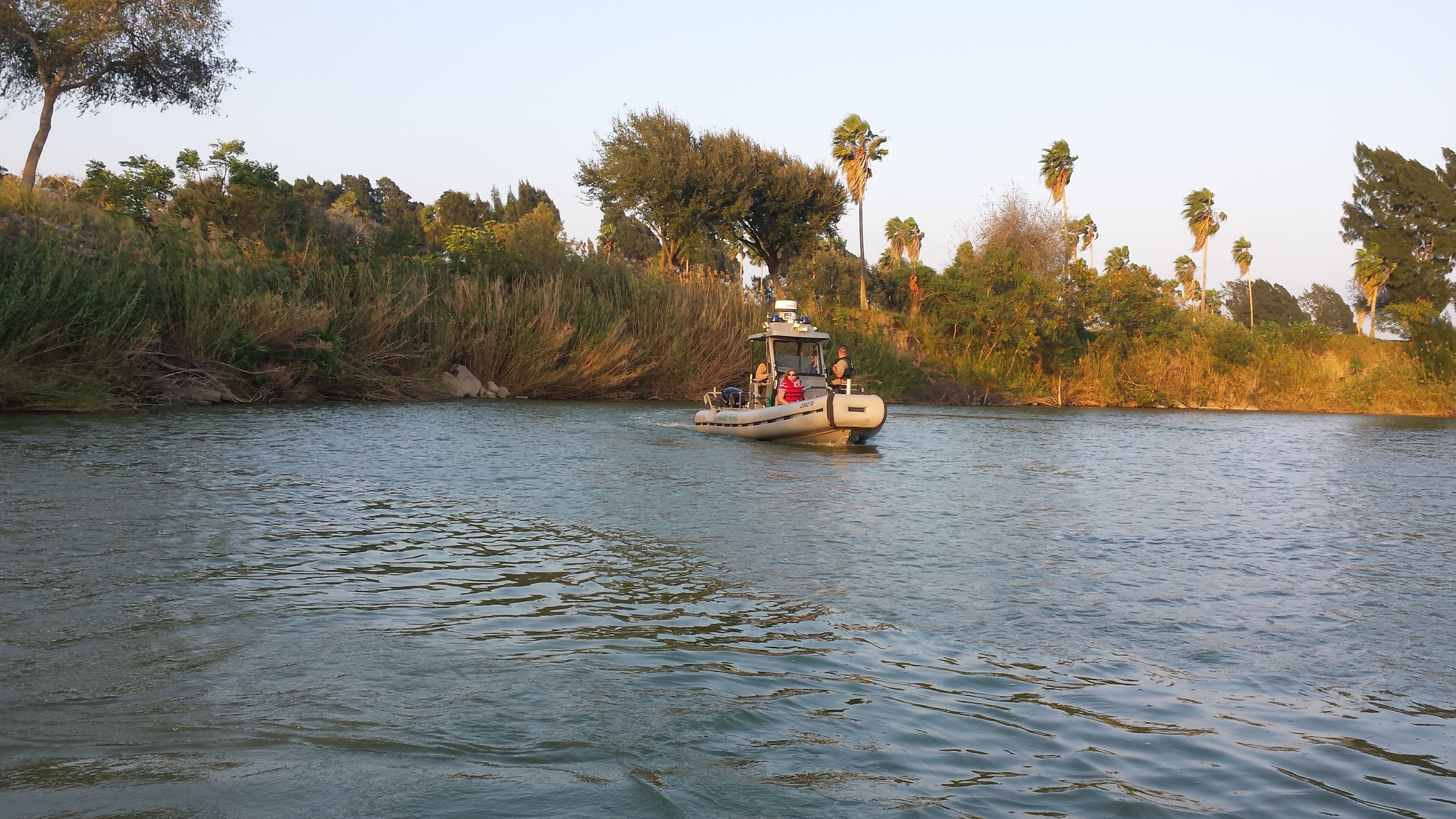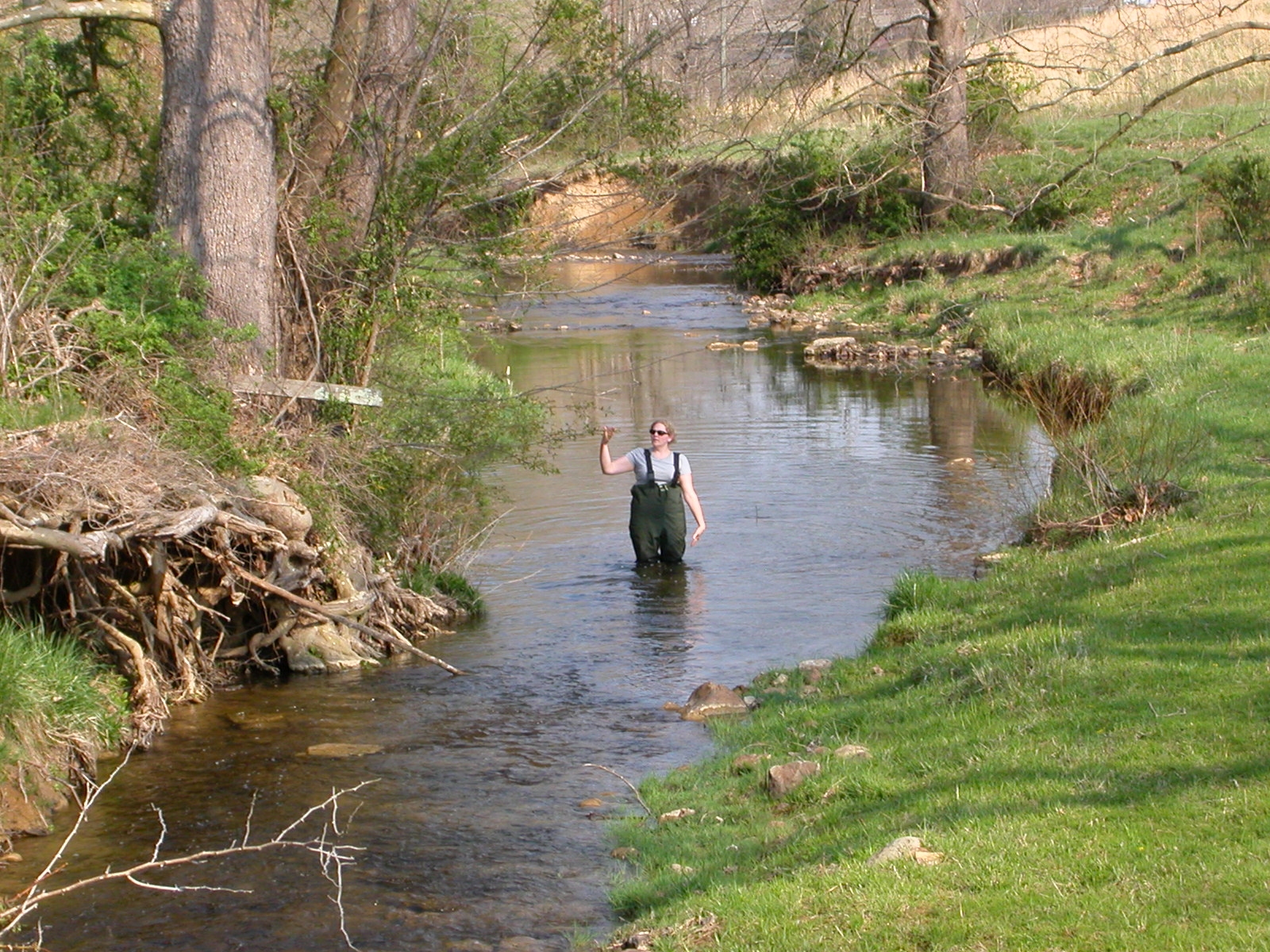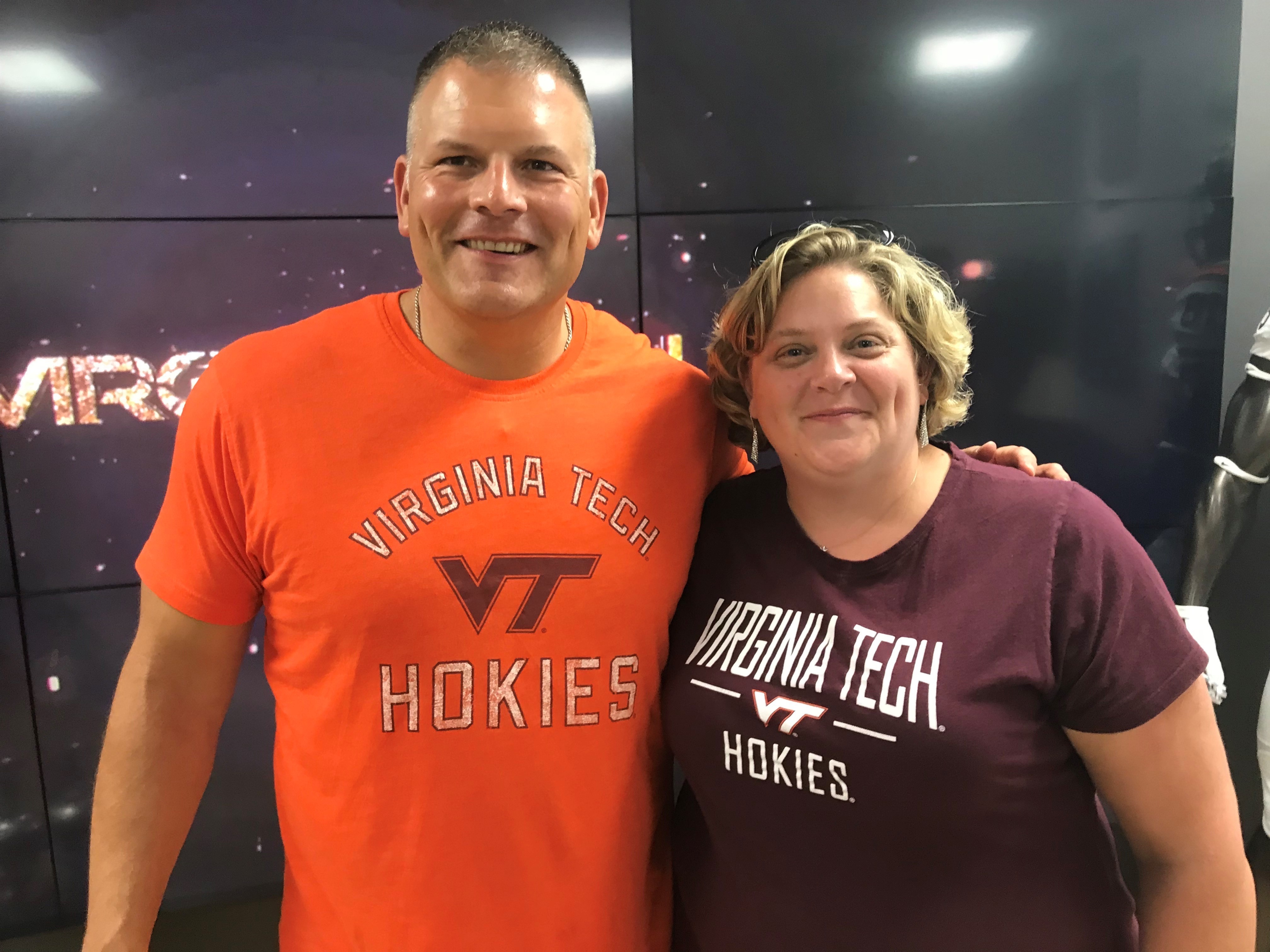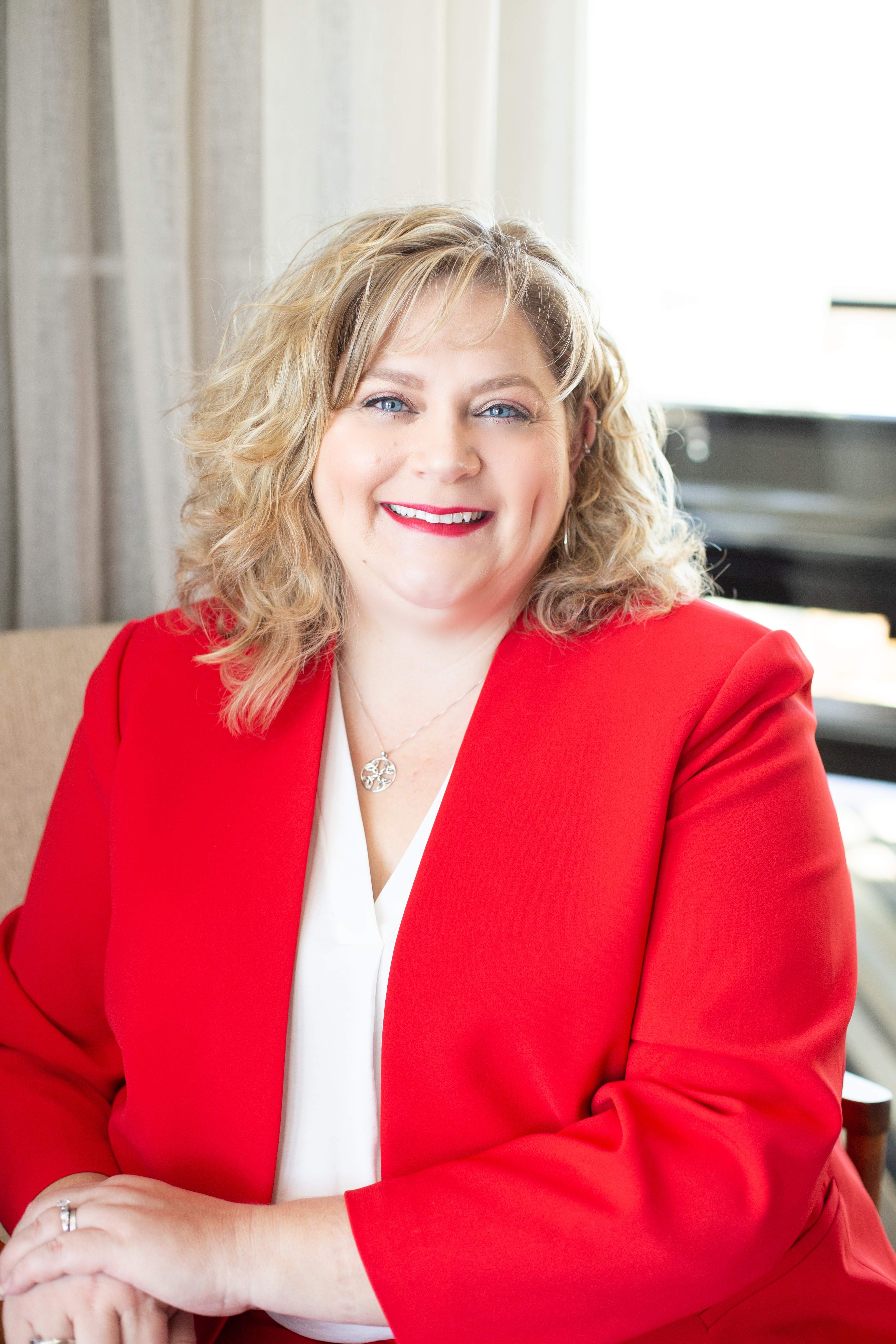A “Triple Hokie” Audra Upchurch helps federal agencies implement environmental policy
May 4, 2021

By Lindsay Key
How will NASA’s plan to build a wind energy farm in Ohio impact migrating bird populations? How will the U.S. Customs and Border Protection’s plan to build a new border patrol station along the U.S.–Mexico border affect a national wildlife refuge there? How will climate change impact our federal infrastructure and mission readiness? These are the types of questions that Master of Natural Resources (MNR) alumna Audra Upchurch leads teams to answer in her work as Director for Infrastructure, Energy and Environment at Logistics Management Institute (LMI), a Virginia-based federal contractor dedicated to resolving complex logistical management challenges.
Leading cross-functional teams of experts
In her role at LMI, Audra oversees nearly 120 staff members who specialize in property asset management, engineering, facilities, energy, climate, sustainability, and environmental compliance. When a governmental agency needs to gauge how a particular management decision is to be evaluated under the National Environmental Policy Act (NEPA), they call Audra’s office. Evaluating how a new development will impact the surrounding environment takes a team of diverse experts that can include biologists; cultural resource, energy, GIS, and real estate specialists; engineers; builders; lawyers; and financial managers. Audra’s office is responsible for making sure the team collaborates to offer a cohesive and comprehensive assessment.
“We put together the analysis and alternative solutions that support the government in making their final determinations,” explained Audra. Many of the recent infrastructure projects her team has worked on have involved assessing climate change risk. “Science tells us how a particular facility will be impacted by climate change—coastal and river flooding, weather, extreme temperatures—and it is our role to help the government agency understand the risk and develop a long-term plan for mitigation and adaptation,” she said.

Paving the way to environmental security
Audra, who earned an undergraduate degree in forestry from Virginia Tech in 2002, didn’t always plan to go into the governmental policy side of natural resources. She started her career working as a nature instructor and visitor center assistant at Claude Moore Park in Sterling, Virginia. In 2004, she started Virginia Tech’s Master of Natural Resources program, which was then held in-person at campuses in Falls Church and Alexandria. At the time, the close proximity to her job in northern Virginia held a significant appeal, allowing her to complete the program part-time while working full-time. But little did she know, the program would also set her on an entirely different career path.
“In my very first class, we went around the room and people were talking about what they do for work, and there was this guy who said, you know, my current headache right now is this NEPA project that I'm working on,” said Audra. “And NEPA was something that I had been wanting to pursue. So, after class, I walked up to him and said, ‘Hey, you said this was a problem. Do you need any help?’ Well, by the end of that first term, he had interviewed and hired me, and I had changed professions completely. I was now doing government consulting, specializing in the National Environmental Policy Act, which was my passion.”
The person who hired Audra was Dave Walls. Audra and Dave became great colleagues and friends and still work together today. “Outside of Virgina Tech, I was managing an environmental management program for Federal clients,” said Walls. Work was expanding, and I needed additional personnel. Audra was a natural fit. In over 20 years of consulting, this was the best and most impactful hiring decision I ever made. As time and life decisions would have it, I am now supporting Audra in her role as Director for Infrastructure, Energy and Environment at LMI. We often reminisce about our time at Virginia Tech and continue to explore the limits of how we can leverage our Virginia Tech education to solve the pressing environmental and natural resource management issues facing our clients.”

In 2007, Audra transitioned to her new role as Environmental Planning Specialist at SAIC, a large government consulting firm, where she focused her NEPA expertise on various projects for the Department of Energy, National Air and Space Administration, and multiple state and local governments pursuing projects and funding under the American Recovery and Reinvestment Act of 2009 (ARRA). During this time Audra graduated with her MNR in 2009. Audra moved to LMI in 2014, working as an environmental project consultant, then a project manager, and now as a director. In 2018, she earned an MBA degree from Virginia Tech, which she said has been crucial in her leadership role.

Making a difference in the lives of young female scientists
Audra credits the MNR for exposing her to the world of natural resource policy and environmental security as a career path. Working in government consulting has “been perfect for me because I’ve had the opportunity to work on so many different types of projects in many various locations across the globe,” said Audra. “I have had the opportunity to support many different types of clients and projects, focusing on how to support the federal mission while meeting the environmental stewardship requirements, all while constantly learning something new. So often when you’re starting out, you just don’t know all of the possibilities for career paths in your field, and I’m lucky I enrolled in the MNR program because it exposed me to a career I’m truly passionate about.”
Recently, gratitude for the mentorship she received also led her to join the board of STEM for Her, a national nonprofit that strives to encourage more girls and young women to pursue STEM careers. Audra leads the volunteer engagement for the organization.
“I am the mother of a 10-year-old daughter who is very STEM-oriented, my husband is an electrical engineer, also a Hokie, and I'm obviously STEM-oriented, as well,” said Audra. “It is important to me to help shape opportunities for our future female STEM leaders and increase opportunities for women like me, to support these amazing girls in their quests to find their passions and careers.”

Audra Upchurch is the Director for Infrastructure, Energy and Environment at Logistics Management Institute (LMI). She is a “Triple Hokie” with three degrees from Virginia Tech: an MNR, an MBA, and a BA in Forestry.


